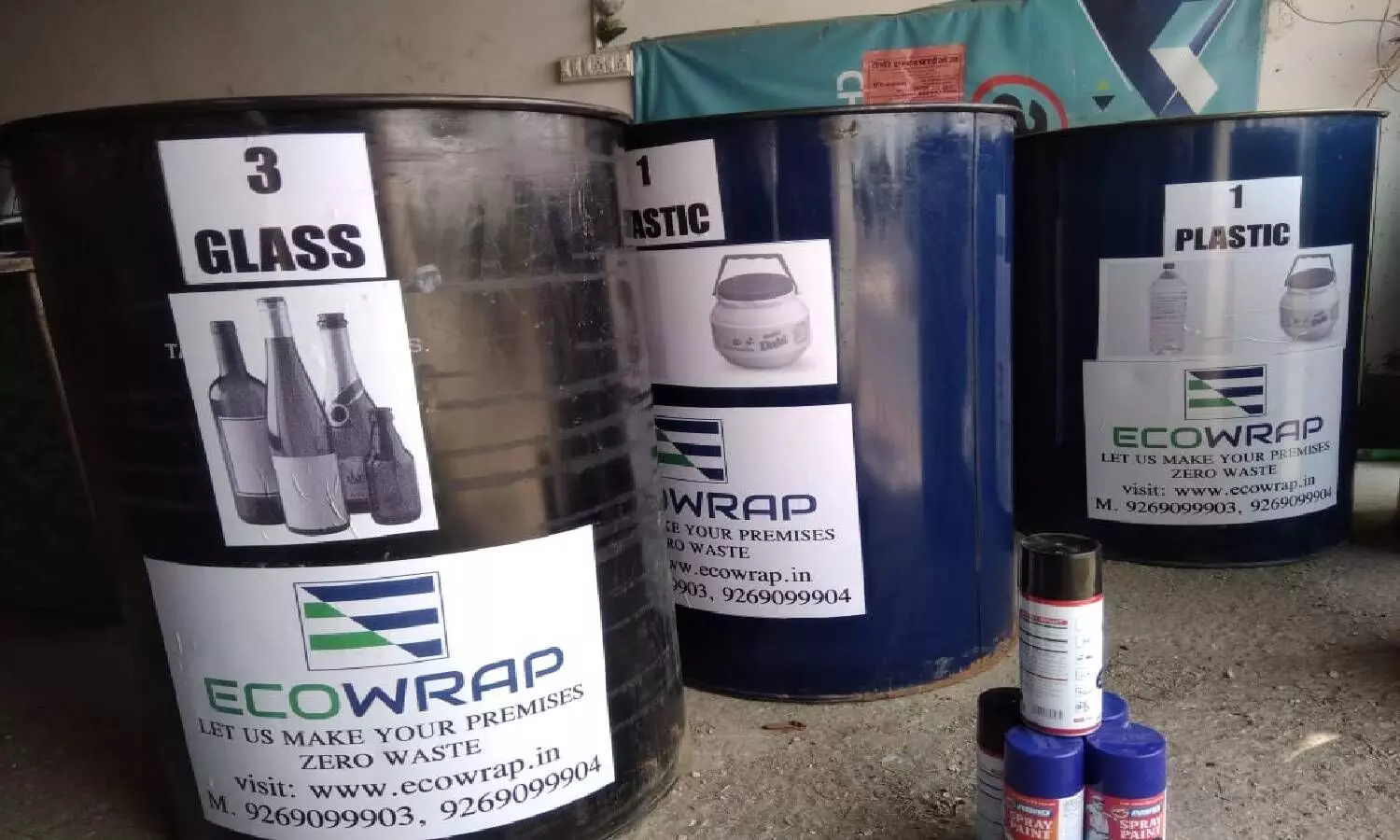Fill the bins, fill your pockets: Jaipur-based Ecowrap incentivises people to segregate waste at source
What if you are paid for collecting and segregating the waste in your own house? Sounds good, right? Ecowrap, a Jaipur-based start-up, is encouraging people to segregate waste at the point of collection by distributing free smart dustbins and paying them once the bins are full.
By Nimisha S Pradeep
Hyderabad: What if you are paid for collecting and segregating the waste in your own house? Sounds good, right? Ecowrap, a Jaipur-based start-up, is encouraging people to segregate waste at the point of collection by distributing free smart dustbins and paying them once the bins are full.
In 2017, when Angraj Swami, the founder of Ecowrap, started the initiative with individual households in Jaipur, he realised that most people are not aware that waste has to be segregated. "Many of them did not have separate bins at home. Also, there was no one to collect the segregated waste in many places," says Angraj. Ecowrap became their one-stop solution to segregate their household waste.
"The greatest problem that the Indian recycling industry is facing is the lack of availability of segregated waste. Recyclers are not getting properly segregated waste," says Angraj.
From smart bins to recyclers
Ecowrap follows a four-degree segregation, i.e., they classify waste into four categories – glass waste, plastic waste, mixed waste, including all the tetra packs, and food waste. Four smart dustbins are provided for the same.
"Smart bins or IoT-enabled bins provide real-time data. When the bins are full, we get notified so that we can send a pick-up van to collect the segregated waste. The waste bags are weighed and people are paid accordingly," explains Angraj.
Once the pick-up vans collect the waste, it is sent to a godown where all the segregated waste are put in their respective conveyor belts and are then sent separately for recycling.
Over the years, Ecowrap has also started to work with hotels where the issue is bigger. "Our field representatives explain to the hotel housekeeping staff how and why the waste has to be segregated. We incentivise them later for segregating waste at the source. Earlier, we used to pay them in cash. Now, we give them coupons which they can use to purchase something in the future," says Angraj.
Post collection and segregation of waste, the same is sent for recycling. Ecowrap, which now works with more than 470 collectives, sends almost four metric tonnes of waste every day for recycling. "We ensure 100% waste management. No waste collected gets dumped in landfills. Everything is either sent for recycling or upcycling," Angraj adds.
Employment for rural women
Out of the total segregated waste collected, 1% is sent for upcycling or for converting into a product of higher value. Through this, Ecowrap is providing employment opportunities to several rural women. "Women belonging to self-help groups (SHG) in rural areas are involved in the upcycling process. It is a source of both livelihood and empowerment for these women," says Angraj.
Upcycled products
Ecowrap is one of the many companies that will participate in INK@WASH 3.0 ((Innovations & New Knowledge in Water, Sanitation and Hygiene) which is going to be held in Hyderabad in May 2022. INK@WASH is a unique platform instituted by Telangana municipal administration and urban development for collaboration and partnerships between start-ups/innovators, mentors, academic institutions, non-profits, funders, and state/city governments.
NewsMeter is the formal media partner for INK@WASH 3.0. This article has been written by NewsMeter in association with the Administration Staff College of India (ASCI).